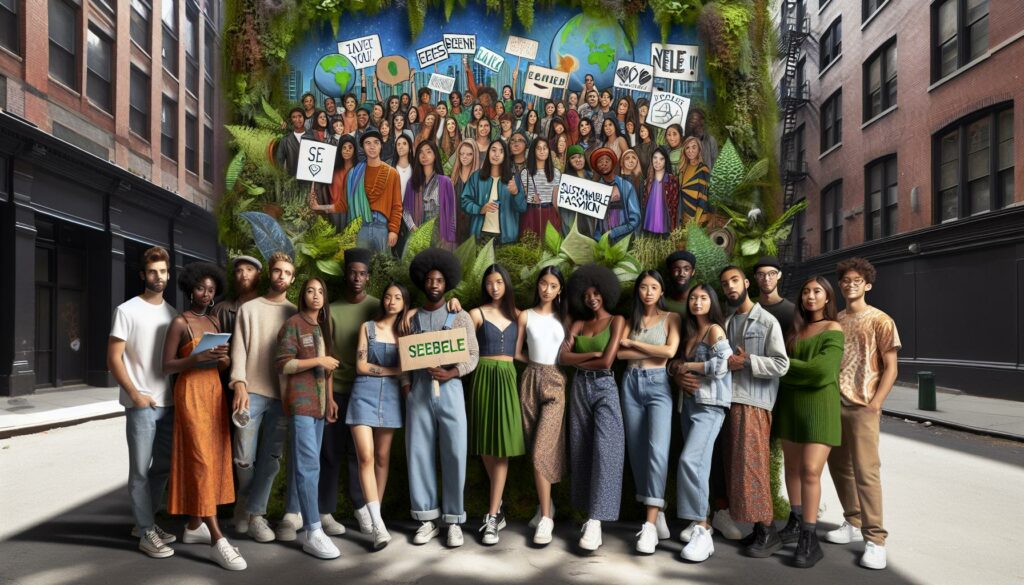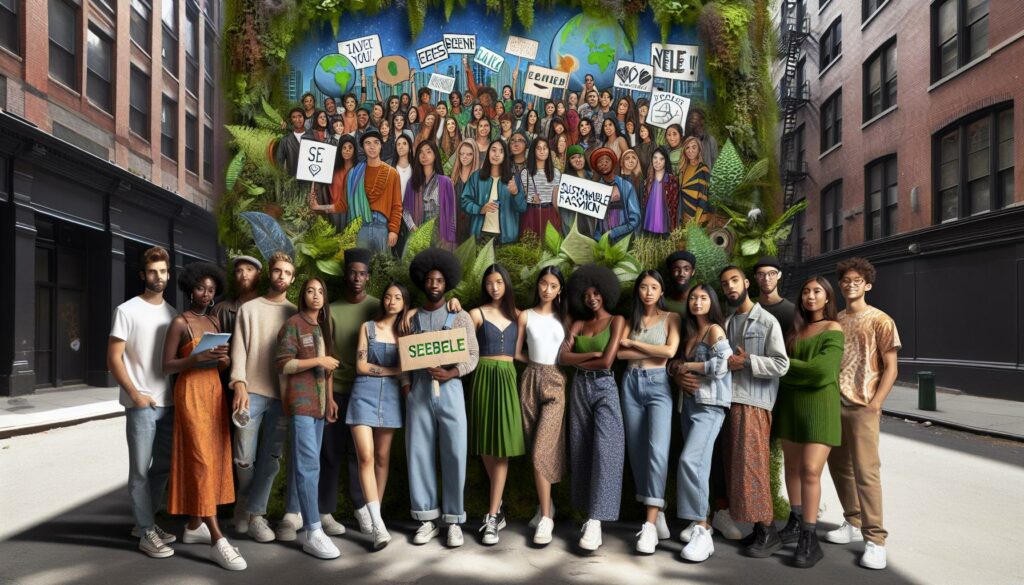The fashion industry is in the midst of a transformation, and I’m excited to explore the world of sustainable affordable fashion. With growing awareness of environmental issues and ethical practices, more consumers like me are seeking stylish options that don’t break the bank or harm the planet. It’s a challenge to find that perfect balance, but it’s not impossible.
Sustainable fashion isn’t just about high price tags or exclusive brands. It’s about making mindful choices that reflect our values without sacrificing style. By embracing affordable alternatives, I can contribute to a more sustainable future while looking great. Join me as I dive into the latest trends, tips, and brands that prove fashion can be both eco-friendly and budget-friendly.
- Sustainable Fashion Defined: Sustainable fashion combines eco-friendly practices with affordability, allowing consumers to make responsible choices without sacrificing style.
- Importance of Affordability: Making sustainable clothing affordable widens accessibility, encouraging individuals from diverse socio-economic backgrounds to adopt environmentally friendly habits.
- Key Practices: Essential components of sustainable fashion include using eco-friendly materials, implementing ethical production practices, and fostering transparency throughout the supply chain.
- Leading Brands: Brands like Everlane, Patagonia, Reformation, People Tree, and MUD Jeans demonstrate how stylish, ethical, and affordable fashion can coexist, setting strong examples in the industry.
- Consumer Trends: Growing demand for sustainable fashion reflects a shift in consumer priorities, with many seeking brands that align with their eco-friendly values and trends amplified by social media.
- Challenges Ahead: Balancing cost and sustainability presents challenges for brands, as they navigate production costs and consumer misconceptions regarding the affordability of stylish sustainable choices.
Sustainable Affordable Fashion
Sustainable affordable fashion combines eco-friendly practices with budget-conscious choices. This approach enables me to make responsible clothing selections without sacrificing style or breaking the bank.
Definition of Sustainable Fashion
Sustainable Affordable Fashion refers to the design, production, and distribution of clothing that minimizes environmental impact and promotes social responsibility. It encompasses practices such as using organic materials, implementing ethical labor standards, and reducing waste throughout the supply chain. Sustainable fashion also involves creating timeless pieces that encourage longevity and discourage fast fashion practices, which contribute to excessive consumption and environmental degradation.
Importance of Affordability in Fashion
Affordability in fashion plays a crucial role in making sustainable options accessible to a wider audience. When sustainable clothing remains within budget, it encourages consumers from various socio-economic backgrounds to adopt environmentally friendly habits. Affordable sustainable fashion addresses the misconception that eco-friendly options are typically expensive, helping to shift consumer behavior towards more responsible purchasing decisions. Access to affordable sustainable fashion creates a community that values ethical consumption while supporting innovative brands dedicated to reducing their environmental footprint.
Key Components of Sustainable Fashion
Sustainable Affordable Fashion includes essential practices that promote environmental health and social equity. These components ensure that fashion remains responsible yet stylish.
Eco-Friendly Materials
Eco-friendly materials form the foundation of sustainable fashion. Organic cotton requires 91% less water than conventional cotton, while TENCEL™ Lyocell employs a closed-loop production process that recycles water and solvents. Recycled polyester, made from post-consumer plastic bottles, diverts waste from landfills. Hemp grows quickly and requires no pesticides, making it an excellent sustainable alternative. Incorporating these materials not only reduces environmental impact but also supports a circular economy.
Ethical Production Practices
Ethical production practices are crucial for maintaining worker dignity and welfare. Fair Trade certification ensures workers receive fair wages and work in safe conditions. Implementing transparency in supply chains allows consumers to trace the origins of their clothing, promoting accountability. Brands that prioritize local production reduce carbon footprints by minimizing transportation emissions. Additionally, adopting zero-waste design practices can significantly cut down on excess fabric waste, promoting sustainability in every step of production.
Brands Leading the Way
Several brands prioritize sustainability and affordability, showcasing the potential for eco-conscious fashion choices. These leaders set a standard for others, proving that ethical practices can coexist with stylish designs.
Notable Sustainable Affordable Fashion Brands
- Everlane
Everlane emphasizes transparency in pricing and sourcing. They provide essential wardrobe pieces made from quality materials while ensuring ethical production practices. - Patagonia
Patagonia commits to environmental conservation and ethical labor. Their recycled polyester and organic cotton products promote sustainability without sacrificing style. - Reformation
Reformation focuses on trendy designs using eco-friendly fabrics. The brand tracks its environmental impact, making strides in reducing waste and carbon emissions. - People Tree
People Tree specializes in Fair Trade clothing, ensuring fair wages and safe working conditions for artisans. The brand combines style with social responsibility. - MUD Jeans
MUD Jeans champions circular fashion with its lease-a-jean concept, allowing customers to recycle or return jeans. This model promotes sustainability while offering fashionable options.
- Patagonia’s Worn Wear Program
Patagonia launched the Worn Wear program to encourage clothes recycling and repair. This initiative not only extends the life of products but also fosters a culture of sustainability. - Reformation’s Eco-Impact Strategy
Reformation adopted a comprehensive eco-impact strategy, measuring every garment’s carbon footprint. This transparency builds consumer trust while demonstrating commitment to sustainable practices. - Everlane’s Radical Transparency
Everlane’s “Radical Transparency” initiative reveals profit margins and production costs. This approach engages customers and sets a new standard for honest practices in the fashion industry. - People Tree’s Fair Trade Practices
People Tree has positively impacted the lives of farmers and artisans through Fair Trade practices. These efforts highlight how ethical fashion practices benefit both workers and consumers. - MUD Jeans’ Circular Economy Model
MUD Jeans exemplifies circular economy principles through its recycling program. Customers can return jeans to reduce waste, illustrating how sustainable practices can be integrated seamlessly into fashion consumption.
Consumer Awareness and Trends
Consumer awareness of Sustainable Affordable Fashion significantly influences purchasing behavior. People prioritize eco-friendly choices and seek brands that align with their values.
Growing Demand for Sustainable Fashion
Growing demand for sustainable fashion reflects a shift in consumer priorities. According to a 2022 McKinsey report, 67% of consumers consider sustainable materials. This trend is fueled by increased environmental concerns and a willingness to invest in ethical products. Many brands are responding by integrating sustainable practices, enhancing their appeal. Sustainable fashion sales are projected to reach $8.25 billion by 2025, reinforcing the need for affordable options. Brands that prioritize transparency and sustainability attract a diverse customer base, driving the movement toward a more responsible industry.
The Role of Social Media in Shaping Trends
The role of social media in shaping trends cannot be overstated. Platforms like Instagram and TikTok amplify awareness of sustainable fashion. Influencers share outfits, promote eco-friendly brands, and foster discussions about sustainability. This visibility educates consumers about ethical practices and highlights brands committed to affordable, stylish options. A 2023 study found that 48% of consumers research sustainable fashion on social media before making purchases. Social media cultivates a community that values sustainability, influencing brands to adapt and innovate in their offerings.
Challenges in Sustainable Affordable Fashion
Challenges persist in achieving sustainable and affordable fashion. Addressing these challenges requires a nuanced understanding of various factors that impact the industry.
Balancing Cost and Sustainability
Balancing cost and Sustainable Affordable Fashion presents a significant challenge. Brands often face higher production costs when using eco-friendly materials and ethical labor practices. For instance, organic cotton tends to cost more than conventional cotton, affecting pricing strategies. Brands that prioritize quality and sustainability may struggle to keep prices accessible, impacting consumer choice. Innovative solutions, like implementing circular design or utilizing recycled materials, can help mitigate these costs. Some brands also explore direct-to-consumer models to reduce overhead, enabling lower prices while maintaining sustainable practices.
Overcoming Consumer Misconceptions
Overcoming consumer misconceptions about sustainable fashion remains crucial. Many still believe that sustainable options come with a steep price tag or lack style. This notion creates barriers, preventing buyers from exploring eco-friendly choices. Education plays a vital role in altering perceptions. Brands can utilize marketing campaigns showcasing stylish sustainable pieces, proving that affordability and aesthetics can coexist. Transparency in sustainability claims is essential. By providing clear information on materials, production methods, and costs, brands can build trust and showcase the value of investing in sustainable fashion.
Embracing sustainable and affordable fashion isn’t just a trend; it’s a movement towards a more responsible way of dressing. I’ve seen firsthand how mindful choices can transform not only our wardrobes but also the planet. By supporting brands that prioritize ethical practices and eco-friendly materials, we can make a significant impact.
It’s empowering to know that stylish options exist without the hefty price tag. As consumers, we hold the power to drive change by demanding transparency and sustainability from the brands we love. Together, we can redefine what fashion means and create a future where style and ethics go hand in hand. Let’s continue to champion sustainable choices that reflect our values while looking fabulous.



